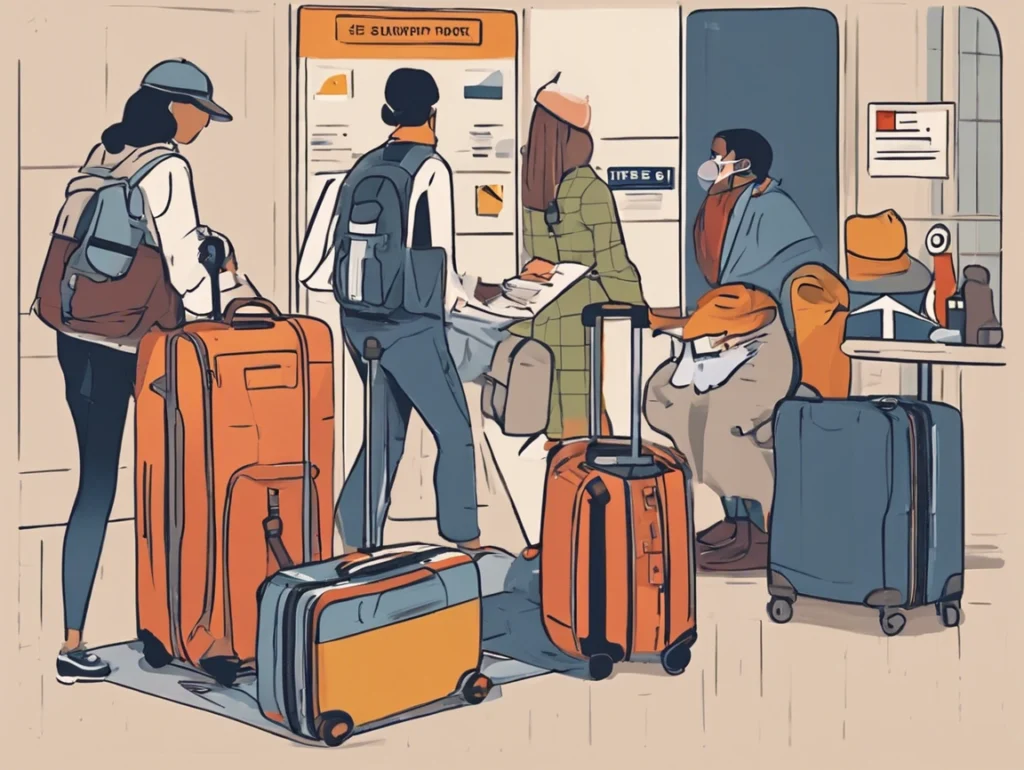1. Baggage Restrictions
Weight Limits
- Checked Luggage: Allowances typically range between 50 and 70 lbs (23 to 32 kg). Exceeding these limits can result in hefty penalties, which vary by airline.
- Carry-Ons: Weight limits are generally between 15 to 25 lbs (7 to 11 kg). Always check your airline’s policy to avoid unexpected charges.
Size Restrictions
- Hand baggage is usually limited to 22 x 14 x 9 inches (56 x 36 x 23 cm). Ensure your bag complies with these dimensions to avoid being denied at the gate.
Prohibited Items
- Sharp Objects: Knives, scissors, and other dangerous items are banned.
- Flammable Items: Gasoline, lighter fluid, and similar materials are not allowed.
- Liquids: Restricted to 100 ml (3.4 ounces) per container for carry-ons.
2. Travel Document Requirements
Passport Validity
- Most countries require your passport to be valid for at least six months beyond your intended exit date.
Visa Requirements
- Some destinations require a visa. Start the application process early, as it can take time to fulfill the requirements.
Health Certificates
- During outbreaks, travelers may need proof of vaccination or health clearance, such as a COVID-19 test. Check your airline and destination for up-to-date requirements.
3. Passenger Conduct on Board
Alcohol Consumption
- Alcohol provided by the airline is allowed. Consuming personal alcohol on board may result in fines or legal action.
Electronic Device Use
- Mobile devices must be switched to airplane mode during takeoff and landing to avoid interference with aircraft operations.
Respectful Conduct
- Passengers are expected to maintain polite behavior with the crew and fellow travelers. Any abusive or disruptive actions may result in removal from the flight or legal consequences.
4. Safety and Security Protocols
Security Screening
- Passengers must undergo security checks, including metal detectors and x-ray scans of carry-on luggage. Be prepared to remove shoes, belts, and jackets.
Screening of Carry-On Items
- Familiarize yourself with prohibited items to ensure a smooth security process.
Emergency Procedures
- Pay attention to safety demonstrations, which include instructions for using seat belts, life jackets, and locating emergency exits.
5. Ticketing Restrictions
Refund and Cancellation Policies
- Many tickets are non-refundable. Read the terms carefully before purchasing.
Change Fees
- Flight changes may incur high fees unless you book a flexible ticket. Some airlines offer free changes under specific conditions.
No-Show Policies
- Missing a flight without prior notice can result in cancellations of subsequent bookings on the same route.
6. Special Assistance
Assistance for Disabilities
- Airlines provide assistance for passengers with disabilities, such as wheelchairs and boarding support. Notify the airline at least 48 hours in advance to ensure proper arrangements.
Travel with Minors
- Each airline has specific rules for minors traveling alone or with guardians. Check for details on age restrictions, tariffs, and required documentation.
Pet Travel Restrictions
- Policies on pet travel vary by airline. Some allow pets in the cabin, while others require them to be transported in the cargo hold. Review these guidelines well in advance.
7. Health and Safety Regulations
Mask Mandates
- Masks may still be required onboard to ensure the safety of passengers and crew during health crises.
Temperature Checks
- Some airlines conduct temperature screenings during boarding to identify passengers with flu-like symptoms.
Health Declarations
- Passengers may need to complete health declaration forms, especially during global health emergencies.
This formatted guide ensures easy navigation and a clear understanding of airline restrictions for stress-free travel.

